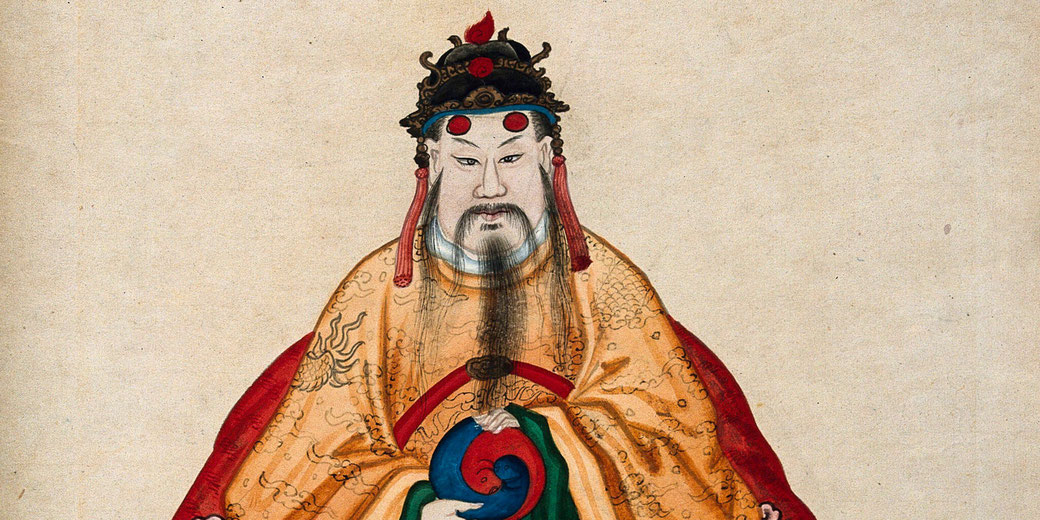What was the Mandate of Heaven?

The Mandate of Heaven is one of the most important and long-lasting ideas in Chinese culture. Importantly, it indicated that the heavens could decide the fate of rulers and the path of Chinese history.
What is it?
The Mandate of Heaven is a concept that has shaped Chinese history which stated that rulers who are fair, trustworthy and look after their people, have a sacred right to govern, while those who fail to meet their duties risk losing the mandate and the right to claim the throne.
It has been the basis of Chinese political authority and a tool for rulers to claim the approval of heaven for their rule.

Origins and historical context
The idea of the Mandate of Heaven was created during the early Zhou Dynasty (1046–256 BCE).
For example, King Wu of Zhou used it to explain why he had overthrown the Shang Dynasty, saying that the Shang had lost heaven’s right to rule because of their misuse of power.
This set a pattern for later dynasties to claim their right to govern.
As a result, the mandate was used by Chinese historians to provide a way to understand the rise and fall of different dynasties.
In their explanation of the early stage of a new dynasty, rulers claimed to have the Mandate of Heaven.
To reinforce their claim, they stressed their good character and promised to look after the people.
As the dynasty did well, people took it as proof that heaven approved of the rulers.
Over time, however, dynasties often grew dishonest. This caused unhappiness among the people and led to the loss of the mandate.
How Confucianism interpreted it
Confucius was a Chinese philosopher who lived from 551 BCE to 479 BCE.
He agreed with the fact that rulers had to be honest, fair and act in the best interests of the people in order to keep the sacred right to govern.
His teachings formed the base of Confucianism, which became crucial in Chinese cultural ideas, which then influenced what society expected from rulers.
As such, their leaders were held to high moral standards.
Then, another Confucian thinker known as Mencius, from the Warring States period (372–289 BCE), expanded on the idea by explaining that the people could judge rulers on their virtue and righteousness.
The 'Dynastic Cycle'
The dynastic cycle describes how dynasties in Chinese history go through a repeated cycle where they rise, grow strong, and then fall apart.
In fact, it is closely linked with how dynasties are thought to have gained and then lost the Mandate of Heaven, according to their people.
When people believed that a ruling dynasty had lost this mandate, the dynasty weakened and faced rebellions. Eventually, it was replaced by a new dynasty.
How nature showed the loss of the mandate
But how did the Chinese people start to think that the mandate had been lost? They actually would start to look for signs in nature, such as flood, drought, earthquakes, or poor crop harvests.
Any of these events were thought to be a clear indication heaven's disapproval, which showed that rulers had failed in their duties.
As such, people began to question the right of the rulers to stay in power.
For example, in the early third century CE, the Han Dynasty faced severe food shortages, plagues of locusts, and major floods.
Following these events, many saw them as proof that the Han had lost the Mandate of Heaven, which led to the dynasty ending in 220 CE.
People also saw moral decay and dishonesty among officials as signs that the dynasty had lost the Mandate of Heaven.
However, this was not always as clear because different groups of people could see the same events in different ways.
Sometimes, rebellions or uprisings showed that people believed the dynasty had lost the mandate, while at other times, the same events were seen as tests of the dynasty's strength and its ability to keep order.
The peoples' 'right to rebel'
If a dynasty lost the mandate, people believed they had the right to overthrow the ruling family in order to start a new dynasty.
When the Manchu-led Qing Dynasty overthrew the Ming in 1644, they argued that the Ming had become corrupt which had triggered the peasant uprisings.
It, therefore, helped the Qing win support even though they were from outside China.
Unfortunately, a rebellion could lead to a new dynasty that was even more dishonest and unfair than the one it replaced.
However, this would only continue the cycle of seeking a new ruler.
What do you need help with?
Download ready-to-use digital learning resources
Copyright © History Skills 2014-2025.
Contact via email
With the exception of links to external sites, some historical sources and extracts from specific publications, all content on this website is copyrighted by History Skills. This content may not be copied, republished or redistributed without written permission from the website creator. Please use the Contact page to obtain relevant permission.





